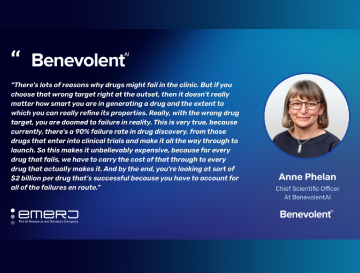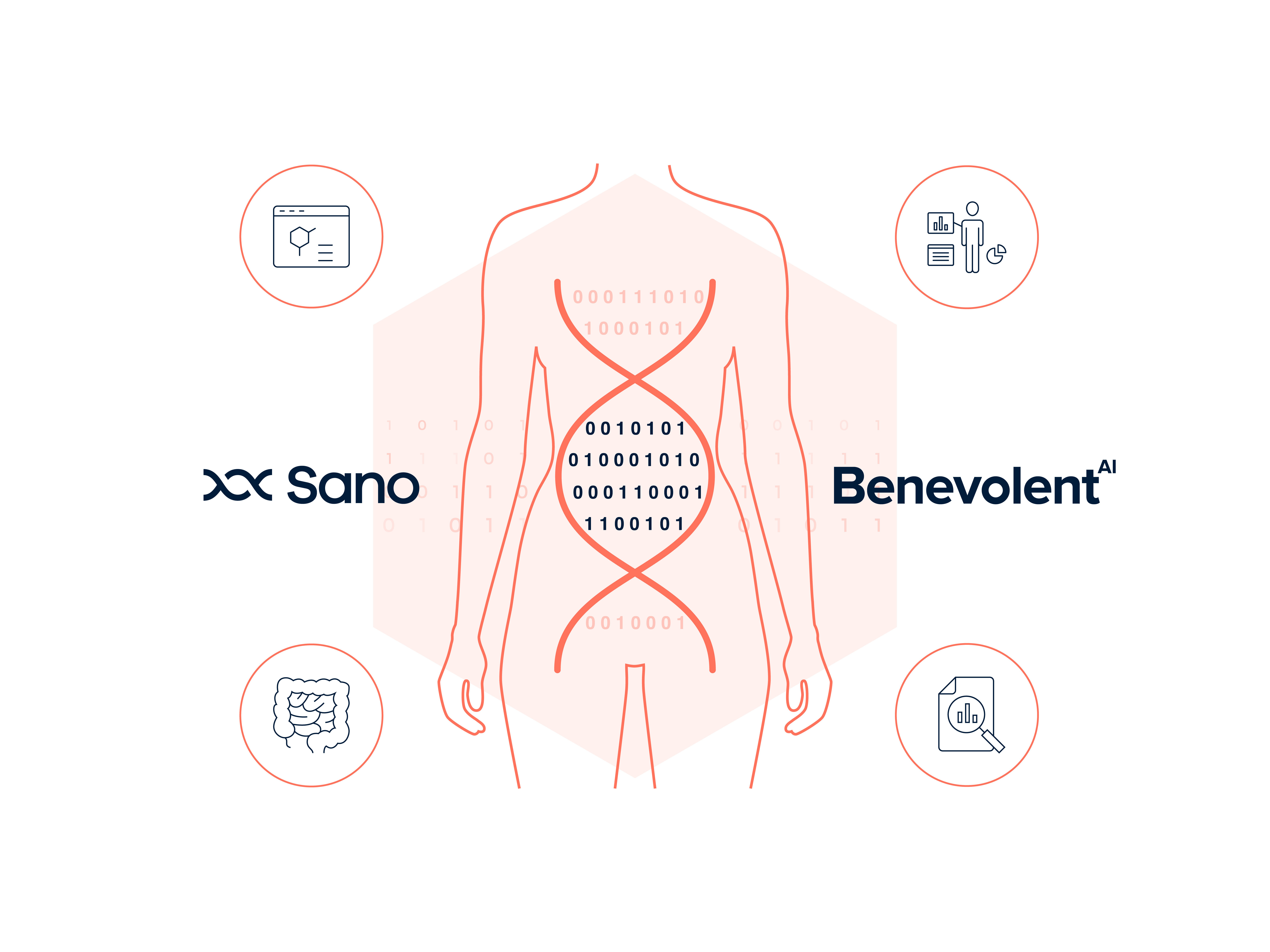The problems we are trying to solve at Benevolent are incredibly complex, and we can advance at a faster rate by sharing knowledge than by working independently.
We recognise the value of each individual’s expertise and insights, and our interns are no exception. That’s why at BenevolentAI, our interns aren’t just ‘interns’, they’re part of our team. They do real work, and contribute directly to our business goals, just like any other employee. Of course, it’s important for our interns to learn from us too, so we allocate a buddy, line manager, and mentor to each intern to help them thrive, both during their time at Benevolent and beyond. Earlier this month, we met our 2020 intern cohort and found out about what brought them to Benevolent. Now, we caught up with them again to find out what they have been up to and how this experience helped with their career development.
First up, we have Arielle. Arielle worked as a data scientist on the metrics and evaluation team:
“During my time at Benevolent, I worked on creating a dashboard to track deployments: a project which aimed to analyze the impact of decisions made throughout the deployment process. In the first few weeks of my internship, I conducted user research with various user groups including drug discoverers and data scientists to identify their needs for the dashboard and the data they wanted to see included. From there, I collated the data for the dashboard and built it out in Tableau. Finally, I worked on gathering feedback from additional users to fine-tune the design of the dashboard. This project gave me the opportunity to experience product development end to end.”
Arielle’s internship helped her to improve her technical skills in coding and data visualisation, while teaching her entirely new skills, particularly around user research: “Prior to my internship, I had done some Python and SQL programming, but had not done a lot of work in a project environment. This internship exposed me to a different style of programming which has been extraordinarily helpful to broadening my skills.
Additionally, I’ve done a lot of work surrounding user research, which is something I had not previously been exposed to. Throughout my internship, I have learned how to write protocols for user research, conduct user interviews, and formalize results.”
Benjamin also worked as a Data Science Intern in the genetics and genomics squad, within knowledge:
In my project, I looked into the use of genetic data in generating drug target predictions. This involved building the pipeline for the ingestion of GWAS data, analysing these data by performing colocalisation analyses, and assessing the impact that colocalisation edges have on the output of the TargetID models.
Benjamin’s time at Benevolent helped to build his awareness of the skills required in the industry: “My aim is to apply for jobs in a similar field when I complete my PhD, working at Benevolent has given me more great experience that will hopefully assist me in applying for jobs in the future, and given me more of an appreciation of the skills I need to develop to get data science/ML engineer jobs.”
Niraj, worked as a Machine Learning Research intern in the Target Identification team, based in New York:
“My project was in the domain of explainable AI. The objective was to add interpretability to the model that generates hypotheses for potential targets that are later validated by the drug discoverers. My role was to generate explanations for why the KGE models predict a target for a given disease, to build confidence for the predictions among drug discoverers.”
During his time at Benevolent, Niraj enjoyed the guidance of a strong management team to help him develop his skills. These learnings gave Niraj the clarity that going to industry would be an ideal next step in his career: “I enjoyed interacting with my manager more frequently than in previous internships, this helped me keep focused on end goals and timelines. I also found the concept of having a buddy, a mentor and a manager really useful, as this helped me to get help at different levels, based on what I needed.
At the beginning of my internship I was not aware of the kind of research opportunities in industry, and I wasn’t sure if I wanted to pursue a job in industry or go for a PhD. After my internship at Benevolent, I got to know the roles and responsibilities of a ML researcher and found good learning and growth opportunities.”
Next we have Adam, who also joined us as a Machine Learning intern in our Precision Medicine team, and has been working on a project to model single cell RNA sequence data that includes perturbations:
“This internship has massively broadened my understanding of the machine learning problems that are currently being studied in (my subfield of) computational biology. I started knowing a little about biology and very little about transcriptomics. I’ve found that many machine learning techniques can perform really well at these tasks, but they have to be used with an understanding of the underlying biology to get the best results.”
Having previously interned at Uber AI Labs, Adam found this internship to be much more applied and focused on specific biological questions: “It has definitely provided me with a clearer idea of what it would be like to work in a company that applied AI to biology. From a research perspective, it’s clear that there are many exciting open problems, and solving them could have a real world impact. It’s also fascinating to see how that fits into the business ecosystem. From a personal perspective, it’s been enjoyable to be part of a wider team, as we tend to work quite individually in academia.
Constantin is our AI science intern in our Precision Medicine team, whose experience at Benevolent helped him to improve his technical skills that will help him on his future career path:
“I worked on different metrics to query the ability of latent variable models to generate biologically meaningful latent spaces from electronic health record data. Apart from the insights into effective working from home, this internship helped me to strongly improve my technical skills, both on specific aspects of machine learning model implementations as well as on reliable software engineering, which I will be sure to use in my doctoral studies going forward.
Doing the internship at BenevolentAI made me quite sure in my choice of future career path, helping me make the all-important choice between academia and industry once I finish my DPhil. It also provided me with a plethora of skills which will be beneficial to my future career path.”
Ferran, our Machine Learning intern working in Knowledge, where he was able to leverage the experience of his team and their research challenges to further his understanding of his own research:
This internship was a great way to experience NLP in a production environment, develop software engineering skills and learn from an amazing team of AI researchers. I feel that interacting with the team and understanding their research challenges has widened my perspective on the key challenges and applications of NLP within the biomedical domain.”
The internship gave Ferran hands-on experience in applied ML, which has played a key part in his professional development: “I feel that when working in academia it is often hard to get experience on scaling up prototypes and efficient delivery of robust products. Working at Benevolent gave me a really good idea of the key elements needed to transform research ideas into useful products that can have an impact on the biomedical field. In addition, I was able to learn potential applications of my PhD research and discuss them with many brilliant people within the company.
Jasmine worked as our Comms intern on the Data Diversity Initiative project:
“I spent my time writing a blog post about the lack of diversity in the cell lines used in research. I also played a key role in organising this internships comms campaign. I came from a scientific background, and this internship helped me to improve my communication and writing skills. I have been able to take ownership of my projects and have been authored on everything I have done.”
Jasmine found she had more independence and responsibility than she’s experienced in previous internships: “Everyone was so welcoming and hospitable, and I’m grateful for how my internship was tailored to my interests. I have really loved my time at BenevolentAI and will be really sad to leave. This job has given me an insight into a field I wouldn’t have really considered as a profession before (which I now definitely would), and has definitely given me great experience for when I start my career.”
Corlijn, worked as a Legal Intern in our CLIP team in London:
“During my time at Benevolent, I worked closely with our ParaLegal on reviewing and drafting agreements, which provided me with a useful insight into legal practice. I also worked with our Director of Patents and VP of IP on submitting our position on AI and IP to the WIPO. My internship project was to compile an overview of our policy positions on AI.”
Corlijn was looking to learn more about IP law to help her gain the insight she needed to pursue a career in life sciences law: “Parjeet, my mentor, and Will, my line manager, really helped me decide what my next steps should be after my masters.”
Back to blog post and videos




